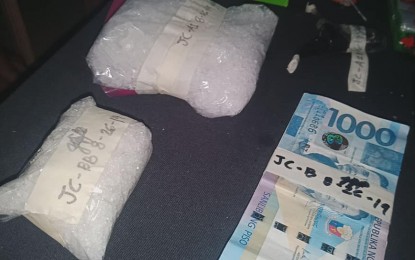
(File photo)
MANILA – Interior Secretary Eduardo Año on Monday said the reinstatement of the death penalty for drug traffickers will strengthen the country's fight against illegal drugs.
In a message to the Philippine News Agency, Año said the measure is long overdue.
“We need to pass it in order to reinforce our fight against illegal drugs. In Asia, tayo na lang ang naiiwan na walang (we are lagging behind because we do not have the) death penalty. Almost all heinous crimes committed are related with the use of illegal drugs,” he said.
Año made the remark after President Rodrigo Duterte, in his 5th State of the Nation Address (SONA), renewed his call for Congress to reinstate the death penalty via lethal injection for heinous crimes related to illegal drugs.
“This is an important deterrent for criminals to stop drug trafficking. So many lives have been wasted because of drugs,” he added.
China and Indonesia are among Asian countries that impose the death penalty as the harshest punishment for drug offenses.
In 2011, three overseas Filipino workers (OFWs) were executed in China for drug smuggling through lethal injection, despite appeals from the Philippine government.
In 2010, another OFW, Mary Jane Veloso, was arrested for carrying heroin in a suitcase in Indonesia.
Her execution set in April 2015 was halted after Jakarta heeded Manila's plea to let her testify in the case against her recruiters.
Meanwhile, Philippine Drug Enforcement Agency (PDEA) Director General Wilkins Villanueva has expressed full support for the revival of the death penalty in the country to deter illegal drug activities.
Villanueva said the absence of death penalty is favorable for drug peddlers who continue with their activities despite being in detention.
“We have caught transactions where the go signal comes from inside (referring to drug suspects in jail) so it means even if they are in jail, they can still continue with their activities. PDEA is in favor of that (death penalty). Their acts of pushing through with their activities even if they are in detention are just too much,” Villanueva said in Filipino in a phone interview.
He, meanwhile, suggested that the imposition of the death penalty should depend on the quantity of confiscated narcotics.
“We just need to determine a certain quantity. Lethal injection is not for small ones. We suggest to have it for one kilo (of illegal drugs) or more," he said.
In 1993, capital punishment was restored under Republic Act 7659 during the term of former president Fidel Ramos.
In 1996, Republic Act 8177 was passed, prescribing the use of lethal injection as the method of carrying out capital punishment.
In 2006, former president Gloria Macapagal-Arroyo signed Republic Act 9346, abolishing the death penalty and downgrading the maximum penalty for crimes to reclusion perpetua (imprisonment of up to 40 years) and life imprisonment.
Duterte has earlier pushed for the reinstatement of the death penalty since the start of his 2016 presidential campaign and in his second SONA in 2017.
Two of his allies in Congress, Senators Ronald “Bato” dela Rosa and Christopher “Bong” Go have both vowed to push for the revival of the measure. (PNA) #DuterteSONA2020 #WeRiseAsOne
